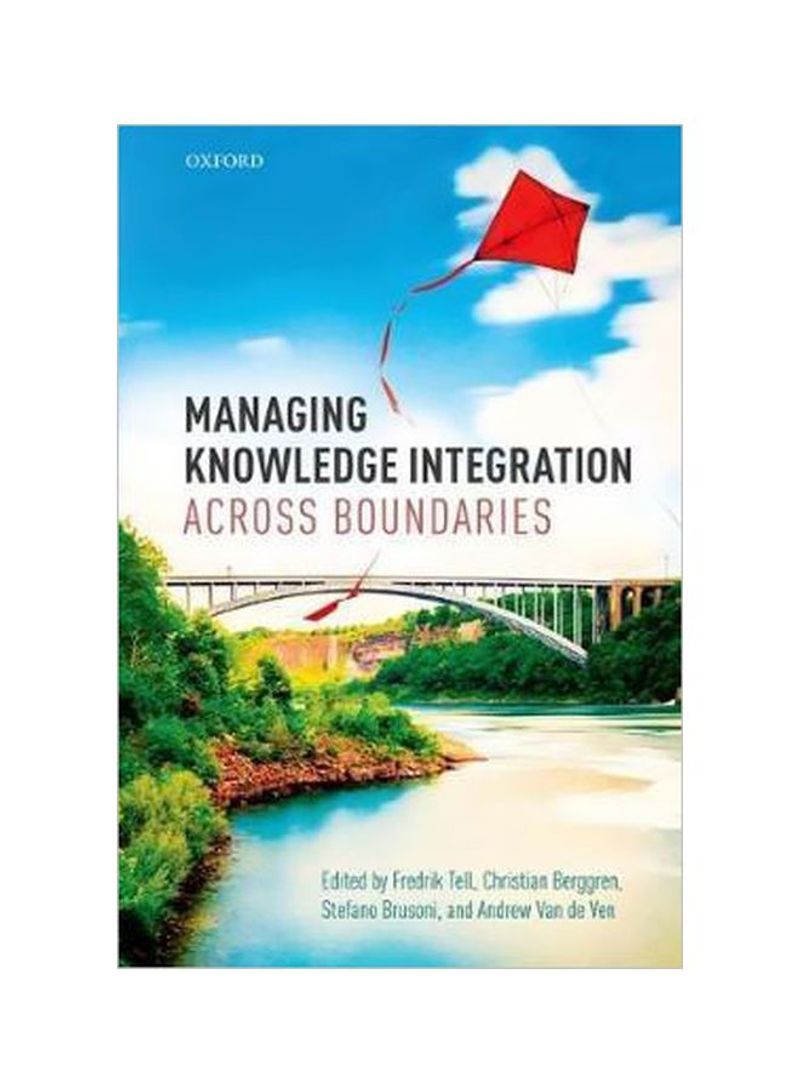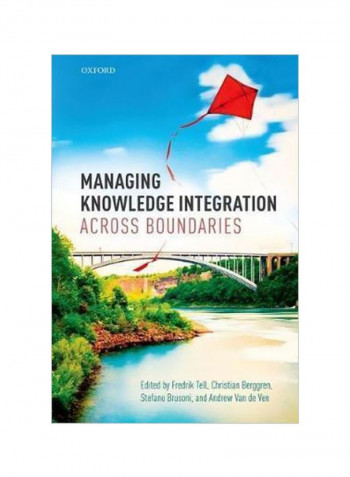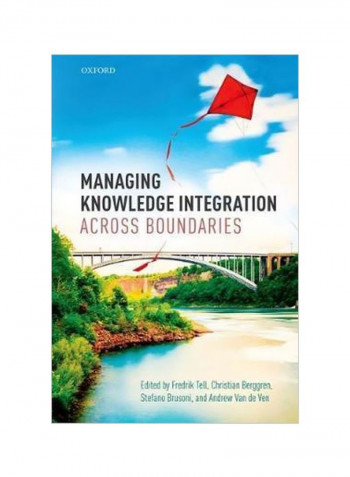Managing Knowledge Integration Across Boundaries Hardcover
Recommend
Sort by
Rating
Date
Specifications
Author 1
Fredrik Tell
Book Description
Knowledge integration - the purposeful combination of specialized and complementary knowledge to achieve specific tasks - is becoming increasingly important for organizations facing rapidly changing institutional environments, globalized markets, and fast-paced technological developments. The need for knowledge integration is driven by knowledge specialization and its geographic and organizational distribution in the global economy. The increasing complexity and relevance of the knowledge integration problem is apparent in emerging new fields of research, such as open innovation, or the merging of existing ones, e.g. organizational learning and strategy. In global competition, the successful management of knowledge integration underpins firms' ability to innovate, generate profit, grow and, ultimately, survive. This book provides conceptual contributions as well as empirical studies that examine knowledge integration essentially as a 'boundary' problem. Knowledge integration becomes a problem when boundaries between knowledge fields, and the institutions that preside over those fields, are not clear, or become fluid and contestable. This fluidity, and the competitive pressures this fluidity generates, are persistent and permanent features of the world we live in. This book puts forward a consistent set of ideas, methods and tools useful to interpret, analyze and act upon the processes of knowledge integration across boundaries.
Language
English
Publisher
Oxford University Press
Publication Date
15 February 2017
Number of Pages
336
About the Author
Fredrik Tell is Professor in Business Administration at Linkoeping University and Director of the KITE Research Group. His research revolves around implications of innovation and knowledge integration for firm strategies, competitiveness and organization. His research has been presented as book chapters in a number of edited volumes and as research articles in journals such as Creativity and Innovation Management, Industrial and Corporate Change, and International Journal of Project Management to name a few. He currently serves as one of the editors of Industrial and Corporate Change (UK & Scandinavia). Christian Berggren is Professor in Industrial Management at Linkoeping University and served as director for the KITE program during her first four years. He has been involved in international debates regarding industry, knowledge and innovation since the early 1990s, critiquing lean production-rhetoric, as well as disruptive innovation theories, and proposing creative accumulation as an alternative. Currently he focuses on studies of innovators in emerging economies, and the technology and policy challenges involved in sustainability transitions, in particular in the automotive industry. His work has appeared in several books and various journals like Research Policy, Industrial and Corporate Change, Sloan Management Review, World Development, Ecological Economics, Journal of Business Research amoung others. Stefano Brusoni is Professor of Technology and Innovation Management at the Swiss Federal Institute of Technology (ETH Zurich). His core research lies in understanding how organizations and individual combine and integrate dispersed knowledge in order to become routinely innovative. His work has appeared in various journals such as Administrative Science Quarterly, Organization Science, Research Policy, Strategic Management Journal, Organization Studies, Industrial and Corporate Change. He is Editor (Continental Europe) of Industrial and Corporate Change, and member of the Editorial Board of Organization Science, Strategic Management Journal, and Academy of Management Discoveries. He is also Chair of the Knowledge and Innovation IG of the Strategic Management Society. Andrew Van de Ven is Vernon H. Heath Professor of Organizational Innovation and Change in the Carlson School of the University of Minnesota. Van de Ven's research over the years has dealt with the Nominal Group brainstorming technique, program planning, organization design, processes of organizational innovation and change, and methods of engaged scholarship. He is co-author of 12 books, including: The Innovation Journey (1999, 2008), Organization Change and Innovation Processes (2000), Handbook of Organizational Change and Innovation (2004), and Engaged Scholarship (2007) all with Oxford University Press. During 2000-2001 Van de Ven was President of the Academy of Management. He currently is serving as founding editor of the Academy of Management Discoveries.
Author 2
Christian Berggren
Author 3
Stefano Brusoni
Author 4
Andrew Van de Ven
Editorial Review
Knowledge may be power, but fragmented knowledge can be disempowering. Finding ways to integrate increasingly specialized, distributed and incomplete knowledge across boundaries is one of the most pressing issues in late modern societieshardly any social or economic problem is effectively addressed unless diverse streams of knowledge are systematically shared and integrated. This is the best book I have seen on this important topic. There is much to admire in it: the diversity of perspectives, the empirical richness, and the theoretical robustness are all evident. It breaks new ground in how we understand knowledge integration. * Haridimos Tsoukas, The Columbia Ship Management Professor of Strategic Management, University of Cyprus and Distinguished Research Environment Professor of Organization Studies, University of Warwick * In the age of open innovation, it is clearer than ever that no firm is an 'island'. However, that important truth does not negate another fundamental property that boundarieswhether between firms, work groups, or national bordershave consequences for the flow of knowledge. This volume by Tell, Berggren, Brusoni, and Van de Ven provide a conceptually sophisticated and empirically rich account of these tensions and challenges. * Daniel Levinthal, Reginald H. Jones Professor of Corporate Strategy, Wharton School, University of Pennsylvania * While it is popular to say that we live in an increasingly 'boundary-less' world, in reality, people in organizations face numerous boundaries in their everyday workgeographic, functional, divisional, cultural, intellectual, etc. This book offers both theoretical and practical insights into how people can manage across or through these boundaries in order to integrate knowledge. * Sarah Kaplan, Professor of Strategic Management Rotman School, University of Toronto *



